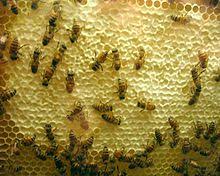 A special program has been set up to support Moroccan beekeepers affected by the phenomenon known as “Bee Colony Collapse Disorder”, noted recently in some regions of the country, announced Sunday the Ministry of Agriculture.
A special program has been set up to support Moroccan beekeepers affected by the phenomenon known as “Bee Colony Collapse Disorder”, noted recently in some regions of the country, announced Sunday the Ministry of Agriculture.
The government has thus earmarked 130 million dirhams to take immediate measures through the support of beekeepers for the reconstruction of infected hives.
The program provides for the distribution of new colonies of bees and the launch of a national campaign to treat hives against varroasis disease as well as awareness campaigns for the benefit of beekeepers, especially with regard to good practices in beekeeping, said the ministry in a statement.
The causes of this phenomenon and ways to mitigate its effects on the beekeeping sector were examined at a working session Saturday, chaired by the headed of government.
During the meeting, the Director General of the National Office of Food Safety (ONSSA) made a presentation on the urgent measures taken as well as the preliminary results of research and analysis carried out by regional veterinary services, in collaboration with representatives of the Moroccan Interprofessional Federation of Beekeeping. The analysis revealed that this phenomenon is new and concerns, to varying degrees, some beekeepers in some regions of Morocco.
Also, laboratory research excludes the hypothesis that a bee disease is the cause of this phenomenon that has also been observed in countries in Europe, America and Africa.
The research attributes the phenomenon to several factors, among others, the low rainfall, the decrease in the quantity and quality of food available for bees or the health status of the apiaries and the prevention methods followed.
The ONSSA has formed a committee of multidisciplinary experts to continue research and studies on this phenomenon, the statement said, noting that the Office also deepens the field surveys in collaboration with professionals in the sector to identify factors contributing to the development of this phenomenon.


